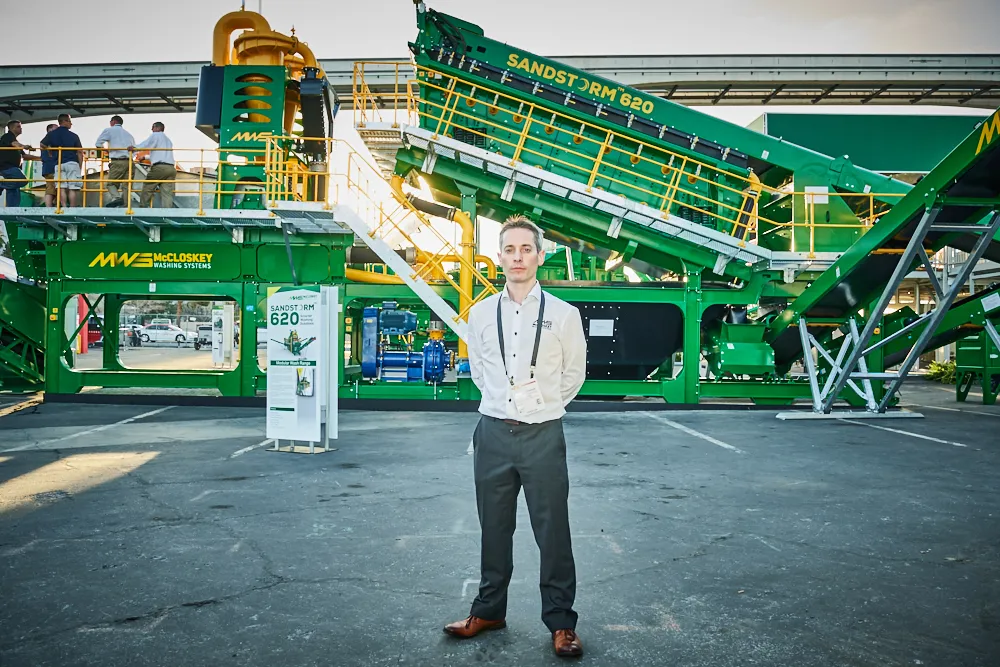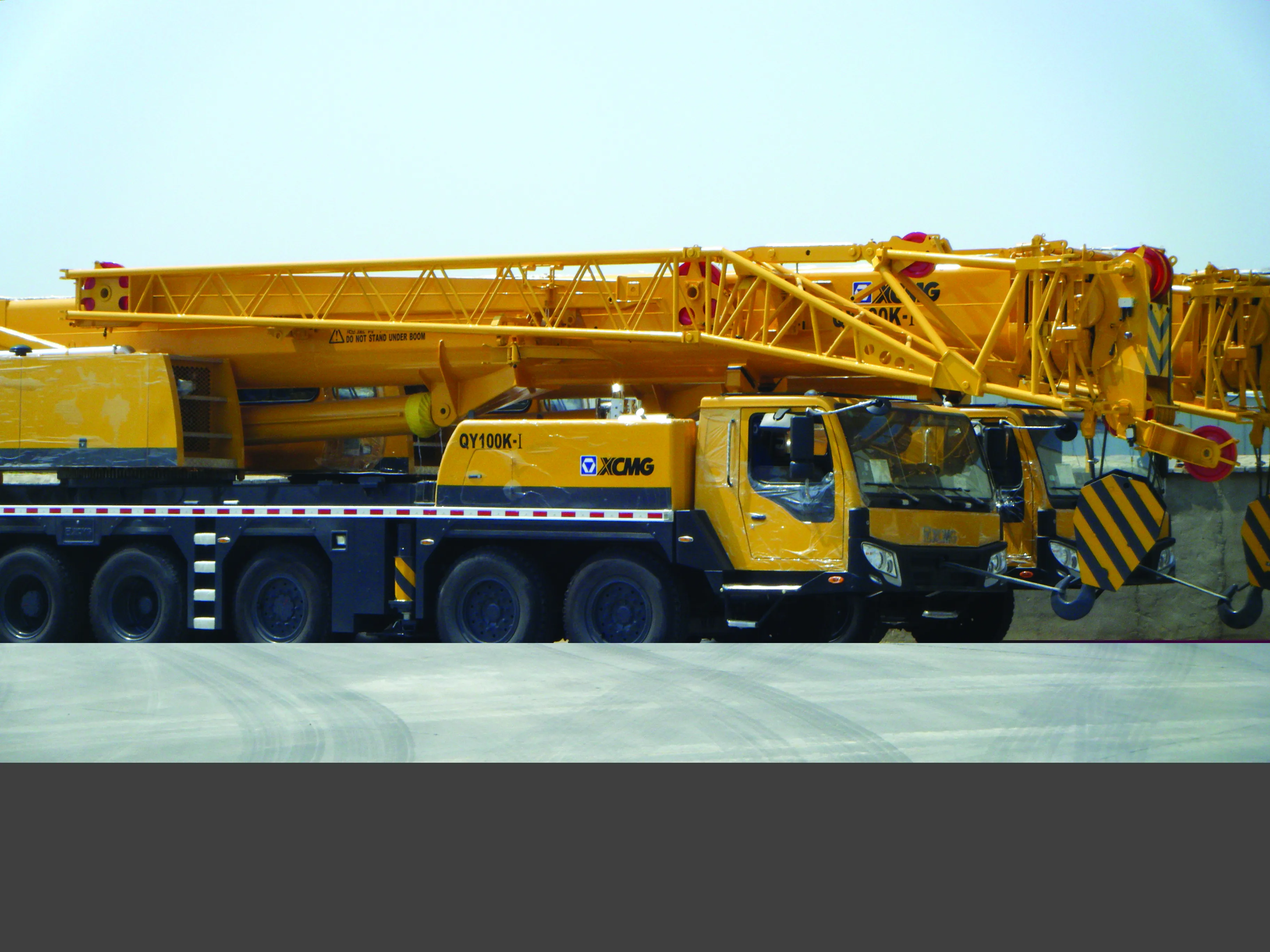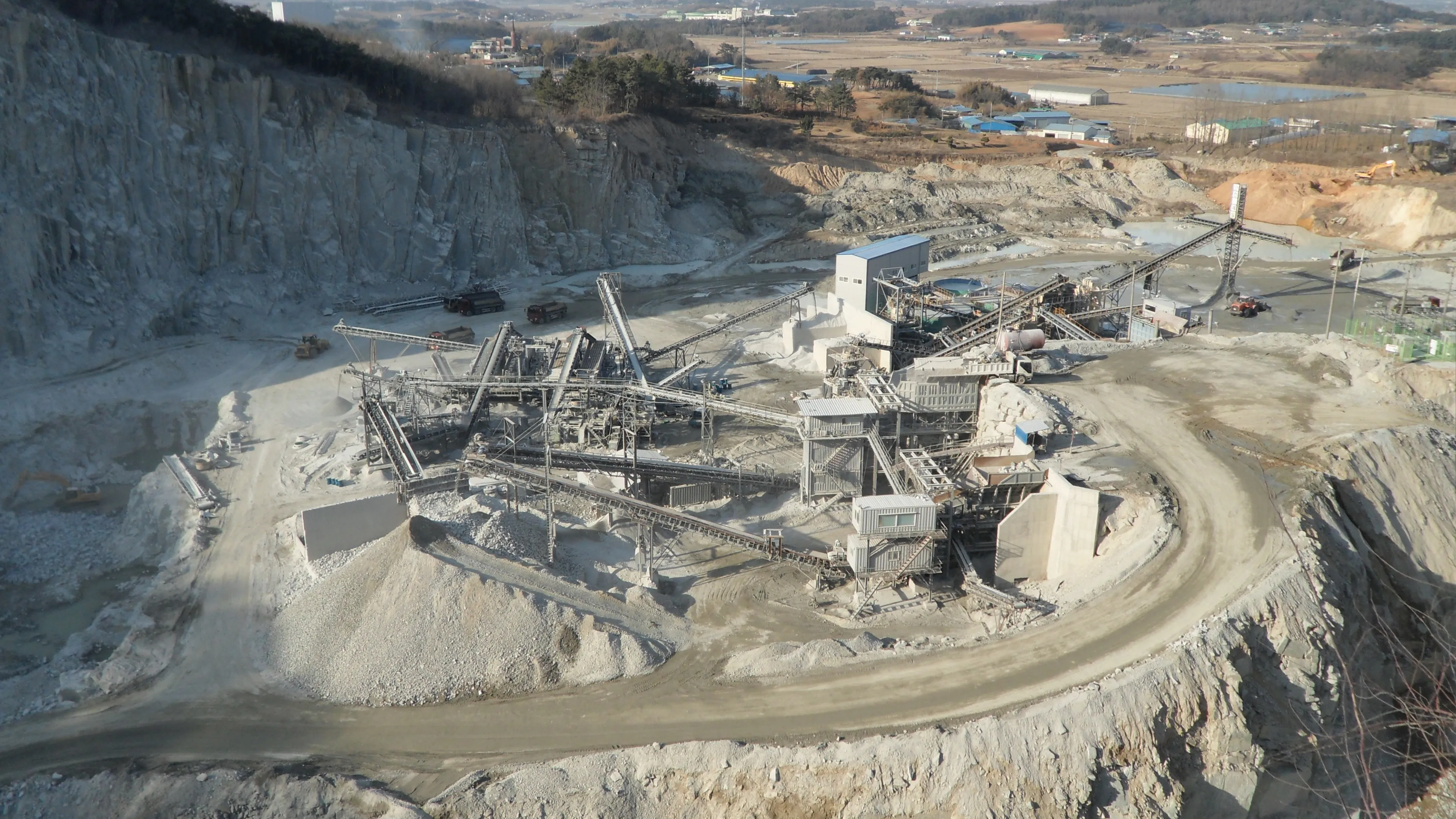
The Sandstorm range – 516, 620 and 824 – incorporates feeding, screening, aggregate and sand washing along with stockpiling all products on a single compact modular chassis.
The model trio can efficiently process feeds up to 550tonnes/hour, with up to four grades of aggregates and two grades of classified sand. The same Sandstorm plants are also available in a new S-Line range, where all the benefits of the modular plant are combined with McCloskey’s tried and tested range of Sand Screws. The S-Line range provides a highly productive, yet cost-effective option for the North American sand washing market.
MWS’s AggStorm range – AggStorm 150 and AggStorm 200 – is designed to operate as a standalone unit or to easily integrate with the SandStorm range of wash plants. MWS says the AggStorm is ideally suited to manage various types of clay-bound material where more aggressive scrubbing and washing id required than basic screening alone.
MWS, a business division of
Speaking at CONEXPO-CON/AGG 2017, MWS director Sean Loughran outlined the rapid growth of the business since its launch in March 2016.
“I personally worked for a large competitor of ours, Terex, for 13 years,” he explained. “I also led the washing systems business for that company and when Pasquale McCloskey, the owner of MWS, approached me, his vision for the business - as a privately-owned business, as opposed to a corporation - was very interesting to me. Not having the corporate shackles allows us to be a lot more fast-moving business, in what is a fast-moving washing market.”
Loughran said that MWS had set out to make high quality modular plants covering a wide range of applications that could be easily shipped across the world, from manufacturing facilities in Canada and Northern Ireland.
“When we started in March 2016, there was no washing products, no washing team, no engineers, no sales people, just me. We had to very quickly build up a team of skilled people from around the industry. Within two months, we had six or seven engineers working on the washing plants. The next thing we did was recruit our sales team, made up of experienced people in the industry.”
Loughran said that - unlike their competitors and thanks to the recent opening of a new 18,580m² factory facility in Northern Ireland - MWS is able to fully assemble and test all washing plants in its Northern Ireland factory prior to being shipped in six 40ft containers to customers. He said this enabled any problems to be detected prior to delivery, rather than having to be dealt with on a customer site.
MWS’ director estimated that 80% of visitors to the McCloskey CONEXPO-CON/AGG 2017 stand had come to see the MWS Sandstorm 620 wash plant – with eight of the machines having already been sold to customers in Canada, Australia, UK, Ireland and the US. “Our dealers who have only been crushing and screening dealers have latched on to this product. They see the potential and it allows them to go toe-to-toe with competitors, something they had never been able to do before. It also gives them a full range of products: crushers, screens, trommels, stackers and wash plants.”
Loughran estimated that the washing plant sector is currently worth $1 billion worldwide – with 60% of the market in North America and Western Europe. He said he was keen for MWS to challenge market leaders, who he identified as CDE, Terex Washing Systems and McLanahan, as quickly as possible. “We believe that very, very quickly we can be in the top three, with our eventual aim being to be the number one for washing plant sales.”








